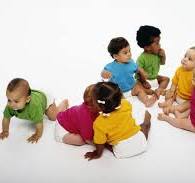Exploring the Fascinating World of Developmental Psychology

Developmental psychology is a fascinating field that explores how individuals grow and change over the course of their lives. From infancy to old age, developmental psychologists study the physical, cognitive, emotional, and social development of individuals at different stages of life.
One of the key aspects of developmental psychology is understanding how nature and nurture interact to shape human development. While genetics play a significant role in determining certain traits and abilities, environmental factors such as upbringing, education, and social interactions also have a profound impact on an individual’s growth and maturation.
Developmental psychologists use various research methods to study human development, including longitudinal studies that track individuals over extended periods of time, cross-sectional studies that compare different age groups at a single point in time, and experimental studies that investigate cause-and-effect relationships.
Through their research, developmental psychologists have uncovered important insights into topics such as attachment theory, cognitive development, moral reasoning, identity formation, and aging. By understanding the processes of development across the lifespan, psychologists can offer valuable insights into how to support healthy growth and well-being in individuals of all ages.
Overall, developmental psychology plays a crucial role in helping us understand what it means to grow and change as human beings. By studying the complexities of development, researchers in this field contribute valuable knowledge that can inform practices in education, parenting, counseling, and other areas that involve supporting individuals through various stages of life.
Understanding Developmental Psychology: Key Concepts and Questions
- What is developmental psychology?
- What are the key theories in developmental psychology?
- How does nature vs. nurture influence human development?
- What are the stages of cognitive development in children?
- How do attachment styles develop in infants and young children?
- What are the effects of aging on cognitive abilities and memory?
What is developmental psychology?
Developmental psychology is the scientific study of how individuals grow and change over the course of their lives. It focuses on examining the physical, cognitive, emotional, and social development that occurs from infancy through old age. Developmental psychologists seek to understand the factors that influence human growth and maturation, including genetics, environment, and social interactions. By exploring questions about how people develop across different stages of life, developmental psychology provides valuable insights into the complexities of human behavior and helps us better comprehend the processes of change and adaptation that occur throughout our lifespan.
What are the key theories in developmental psychology?
In developmental psychology, several key theories provide frameworks for understanding how individuals grow and change over time. One prominent theory is Jean Piaget’s stages of cognitive development, which outlines the progression of children’s thinking from simple sensorimotor actions to more complex abstract reasoning. Another influential theory is Erik Erikson’s psychosocial stages of development, which focus on the social and emotional challenges individuals face at different life stages. Additionally, Lev Vygotsky’s sociocultural theory emphasizes the role of social interactions and cultural context in shaping cognitive development. These theories, among others, offer valuable insights into the multifaceted processes of human growth and maturation.
How does nature vs. nurture influence human development?
The debate surrounding nature versus nurture in human development is a longstanding and complex one. While nature refers to genetic and biological factors that influence traits and abilities, nurture encompasses environmental influences such as upbringing, education, and social interactions. Both nature and nurture play significant roles in shaping human development, with genetics providing a foundation upon which environmental experiences can further mold an individual’s growth. Understanding the interplay between nature and nurture is essential in comprehending the multifaceted processes that contribute to an individual’s physical, cognitive, emotional, and social development across the lifespan.
What are the stages of cognitive development in children?
Understanding the stages of cognitive development in children is essential for gaining insights into how young minds grow and evolve. According to renowned psychologist Jean Piaget, children progress through distinct stages of cognitive development: sensorimotor, preoperational, concrete operational, and formal operational. During the sensorimotor stage (birth to 2 years), infants explore the world through their senses and motor skills. In the preoperational stage (2 to 7 years), children develop symbolic thinking but struggle with logic and conservation. The concrete operational stage (7 to 11 years) sees improved logical thinking and understanding of conservation, while the formal operational stage (11 years and older) marks the ability for abstract reasoning and hypothetical thinking. By recognizing these stages, parents, educators, and caregivers can better support children’s cognitive growth and provide appropriate learning opportunities tailored to their developmental needs.
How do attachment styles develop in infants and young children?
Attachment styles in infants and young children develop through their interactions with primary caregivers, typically their parents or caregivers. The quality of care and responsiveness provided by caregivers plays a crucial role in shaping a child’s attachment style. Secure attachment often forms when caregivers consistently meet the child’s needs, provide comfort and support, and create a safe environment for exploration. In contrast, insecure attachment may develop if caregivers are inconsistent, unresponsive, or neglectful in their interactions with the child. These early experiences influence the child’s expectations of relationships, sense of security, and ability to regulate emotions throughout their development.
What are the effects of aging on cognitive abilities and memory?
As individuals age, there are notable changes in cognitive abilities and memory. While some cognitive functions may decline with age, such as processing speed and working memory capacity, other aspects of cognition, such as crystallized intelligence and wisdom, may remain stable or even improve. Memory also tends to show variations with aging, with episodic memory (memory of specific events) often showing decline while semantic memory (general knowledge) remains relatively intact. Factors such as genetics, lifestyle choices, and overall health can influence the extent to which aging affects cognitive abilities and memory in individuals. Understanding these effects is crucial for promoting healthy aging and developing strategies to support cognitive function in older adults.




Leave a Comment